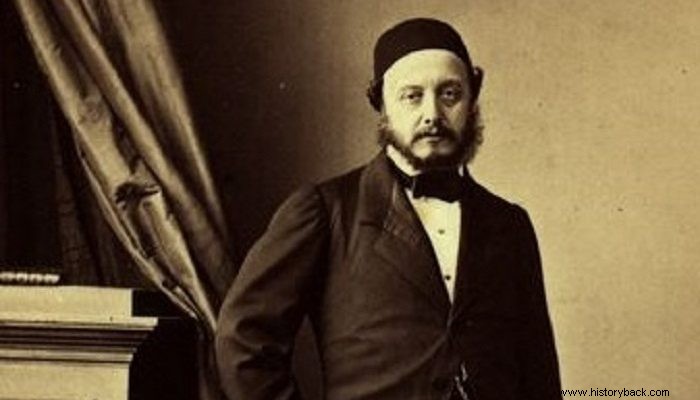
Konstantinos Moussouros was a, indulgently, controversial personality. He was Greek by birth, scion of a large Phanariot family with Cretan roots. He was born in 1807 and in 1840 he was appointed as the first ambassador of the Ottoman Empire to Greece.
Mousouros, however, could be characterized as more Turkish than the Turks in his behavior. He defended the interests of the sultan even at the expense of those of the Greek state, i.e. his race. Twice during his tenure in Athens he became the cause of a diplomatic incident, in collaboration with the British ambassador in Athens, the intriguer and enemy of Othona Lyons.
According to one point of view, Mousouros presented himself so hostile towards Greece in order not to be accused by the Turks of being biased in favor of his compatriots. However, this justification is not enough to justify his actions. In the final analysis it would be better to resign if it conflicted with his conscience. But it seems that somewhere there was a deficit... in consciousness.
On January 25, 1847, the campaigner and supporter of King Otto Tsamis Karatassos visited Moussouri at the embassy asking him for a passport to visit Istanbul. But Mousouros refused on the grounds that Karatassos had participated in a movement against the Turks in Macedonia...
Mussouro's refusal was, among other things, a personal insult to King Otto. Thus, when Mousouros was invited to a reception at the palace on January 27, Othonas told him verbatim:"I think, sir, that the king of Greece deserved more respect" . Then the king ostentatiously moved away.
The episode could have been completely ignored by Mussuro. However, he did not let the opportunity go to waste to hurt his compatriots. Under the guidance of Lyons, he ostentatiously left the reception, causing a diplomatic episode inversely proportional to its gravity and immediately informing his Turkish bosses.
Of course the Sultan did not miss the opportunity to humiliate Greece, demanding a public apology from Athens , which was not accepted by the then Prime Minister Ioannis Kolettis. Following the Greek refusal, Mousouros left Greece on February 3. Thus the diplomatic relations between Greece and the Ottoman Empire were severed.
In August, the Turks severed all relations with Greece, diplomatic and mainly commercial, which cost Athens dear. Finally, after the death of Prime Minister Ioannis Kolettis, a solution was found that gilded the bitter pill for Greece, with the Greek government apologizing to Moussouri personally and not to the Ottomans, although a letter was also sent to the Sultan.
Moussouros returned to Athens on February 8, 1848, but Greece's problems with him did not end. On April 23, 1848, the servant at the Turkish embassy, Apostolos Nadiris, tried to kill Mousouros because, as he declared, "he couldn't bear to hear him speak badly against the Greeks anymore"...
Mousouros was slightly injured in the arm. Although it turned out that Nadiris acted of his own free will, Greece's refusal to extradite him to the Turks caused a new diplomatic incident and Turkish reprisals against the Greeks in the City.
Finally the episode was settled and Moussouros was transferred to the Ottoman embassy in Vienna to the great relief of the Greeks who were spared from the "Greek" diplomat. Mousouros later also served in London while the Turks awarded him the title of pasha. He died in 1891 in Polis.
